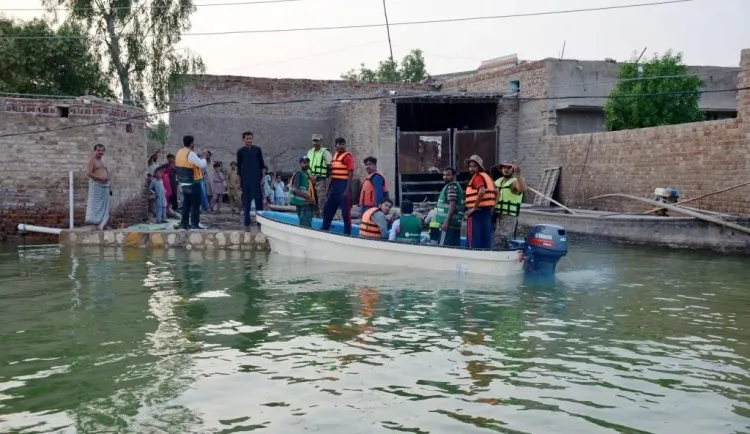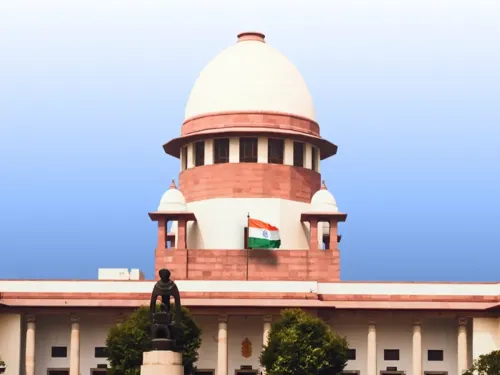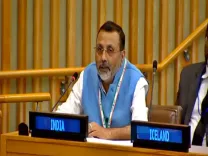Is Pakistan's Urban Flood Crisis a Result of Governance Failure?

Synopsis
Key Takeaways
- Pakistan’s urban flood crisis is primarily a governance failure.
- The lack of urban planning exacerbates flooding issues.
- Stagnant water leads to public health concerns.
- Heavy rainfall signals disaster rather than relief for residents.
- Proactive measures are necessary to ensure sustainable urban development.
Islamabad, Oct 13 (NationPress) The urban flood crisis facing Pakistan transcends mere environmental and infrastructural issues, revealing a fundamental governance failure, according to a report released on Monday.
It emphasizes that the absence of foresight, inadequate accountability, and a lack of respect for natural systems have rendered cities susceptible to devastation with the onset of rain.
“The visuals of the country’s largest cities submerged in knee-deep water during the monsoon have lost their shock value—they have become a common sight. For the inhabitants of Karachi, Lahore, Sialkot, Faisalabad, Sargodha, Kasur, and numerous other urban areas, the monsoon signifies not a season of respite but one of anxiety,” the report published in the Bangladeshi newspaper Asian Age elaborated.
“Roads transform into rivers, homes become waterlogged, transportation systems collapse, and public life comes to a standstill. The reasons behind this recurring catastrophe are not enigmatic. Experts have been alerting authorities for years: Pakistan's cities are plagued by a persistent shortage of urban planning, particularly in managing rainwater and natural drainage systems,” it continued.
The report points out that Pakistan's developmental strategy appears to be motivated by the principle of “construct wherever feasible, and deal with the repercussions later.” Roads, housing developments, and commercial projects arise on any available land, frequently with minimal regard for how rainwater is managed.
“Inexpensive plots situated in natural waterways are quickly purchased for construction and subsequently sold at substantial profits. Drainage systems, if they are even considered, tend to be basic and often dysfunctional. The result is predictable: natural channels are blocked, storm drains become obstructed, and rainwater accumulates into stagnant ponds in low-lying regions,” the report emphasized.
“Each image of submerged vehicles and waterlogged streets reflects the human cost of this systemic negligence. Daily wage earners find themselves unable to work, children are unable to attend school, and families suffer losses of cherished possessions. Public health crises follow closely behind, as stagnant water becomes a haven for disease. For millions, the monsoon is not merely an inconvenience—it is a season of turmoil,” it stated.
The report asserted that the psychological burden is equally severe, with urban inhabitants living in constant fear of rain, a natural occurrence that should signify relief but instead foreshadows disaster.
It stated that citizens are compelled to devise survival strategies, from elevating furniture and sealing doors to fleeing their homes, while officials offer little more than empty promises.
“The situation illustrates a broader trend in Pakistan’s governance ethos: reactive measures instead of proactive planning, and temporary fixes instead of institutional reform. Every monsoon, political figures hastily visit flooded regions, release statements of concern, and promise ‘comprehensive strategies’ that ultimately fail to materialize,” the report noted.









